EK BİÇ YE İÇ @ Taksim
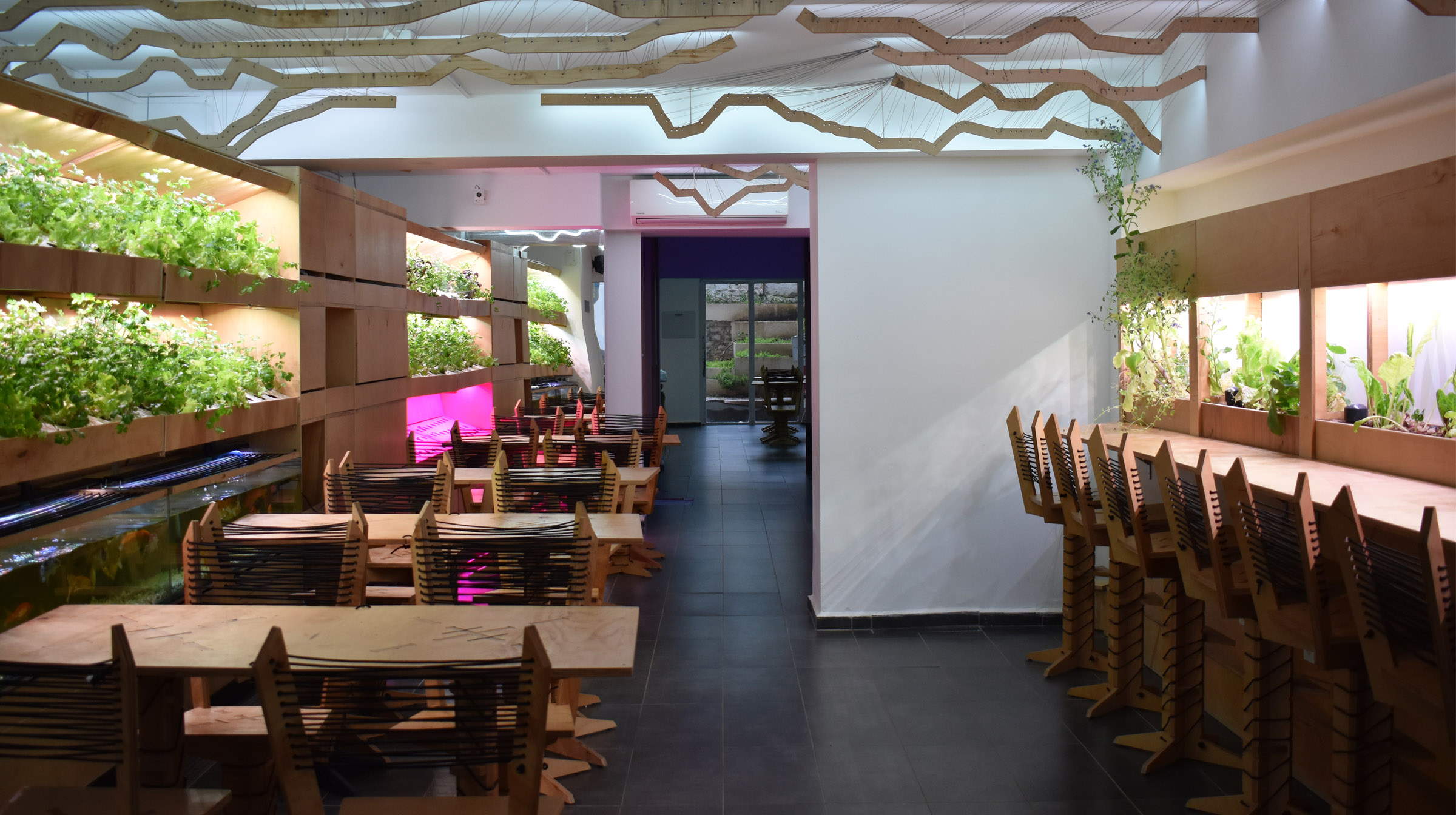
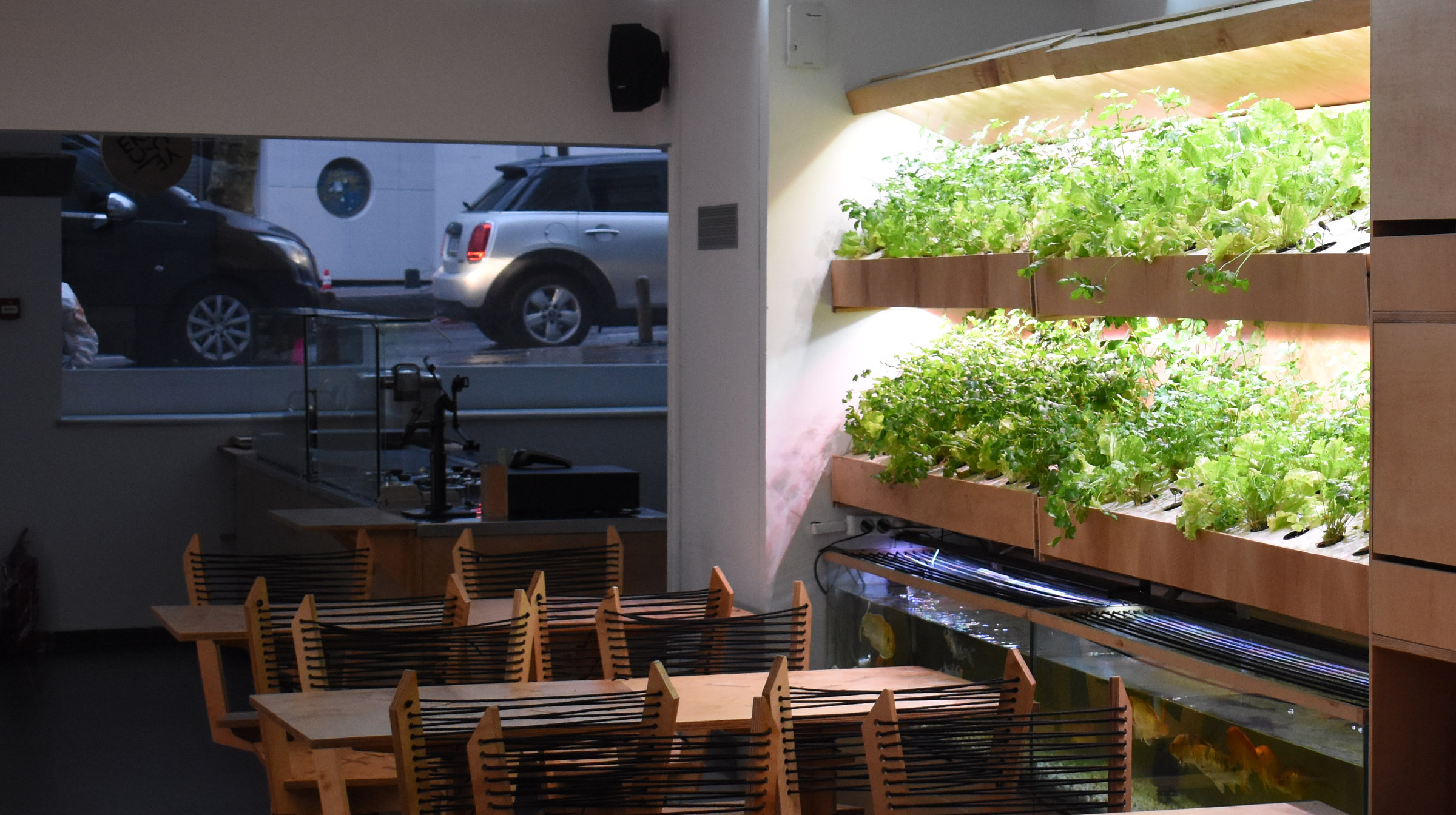
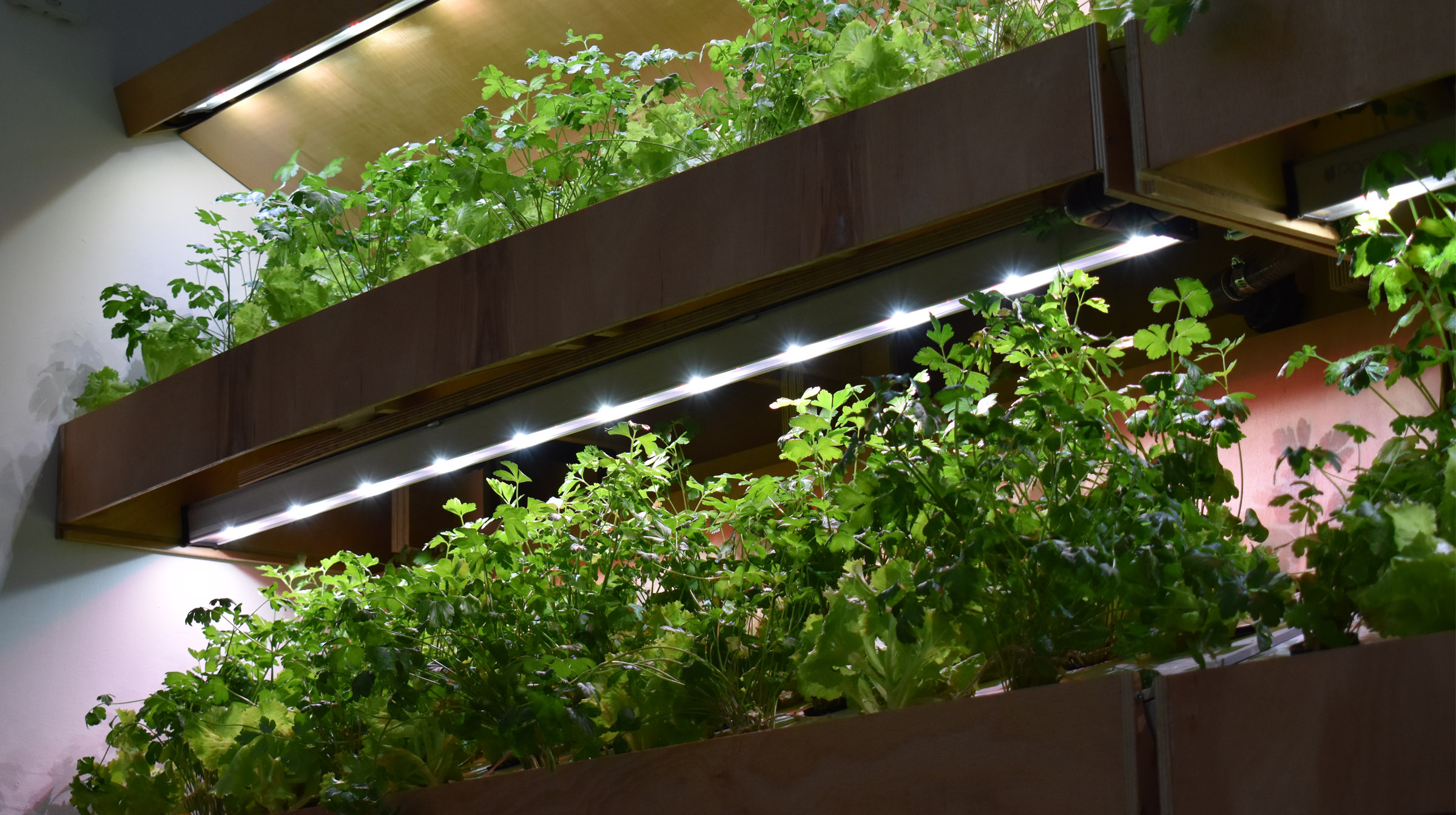
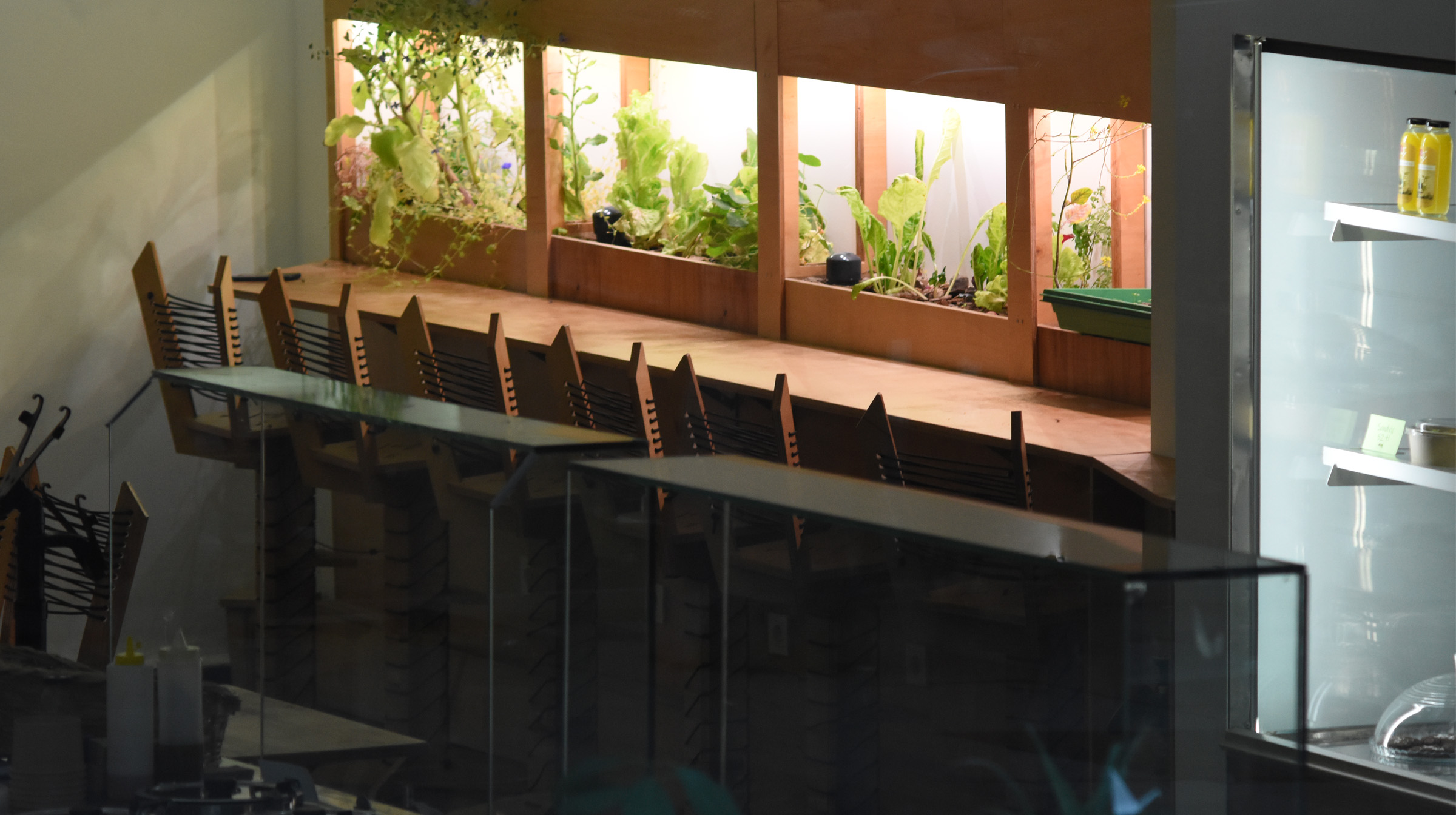

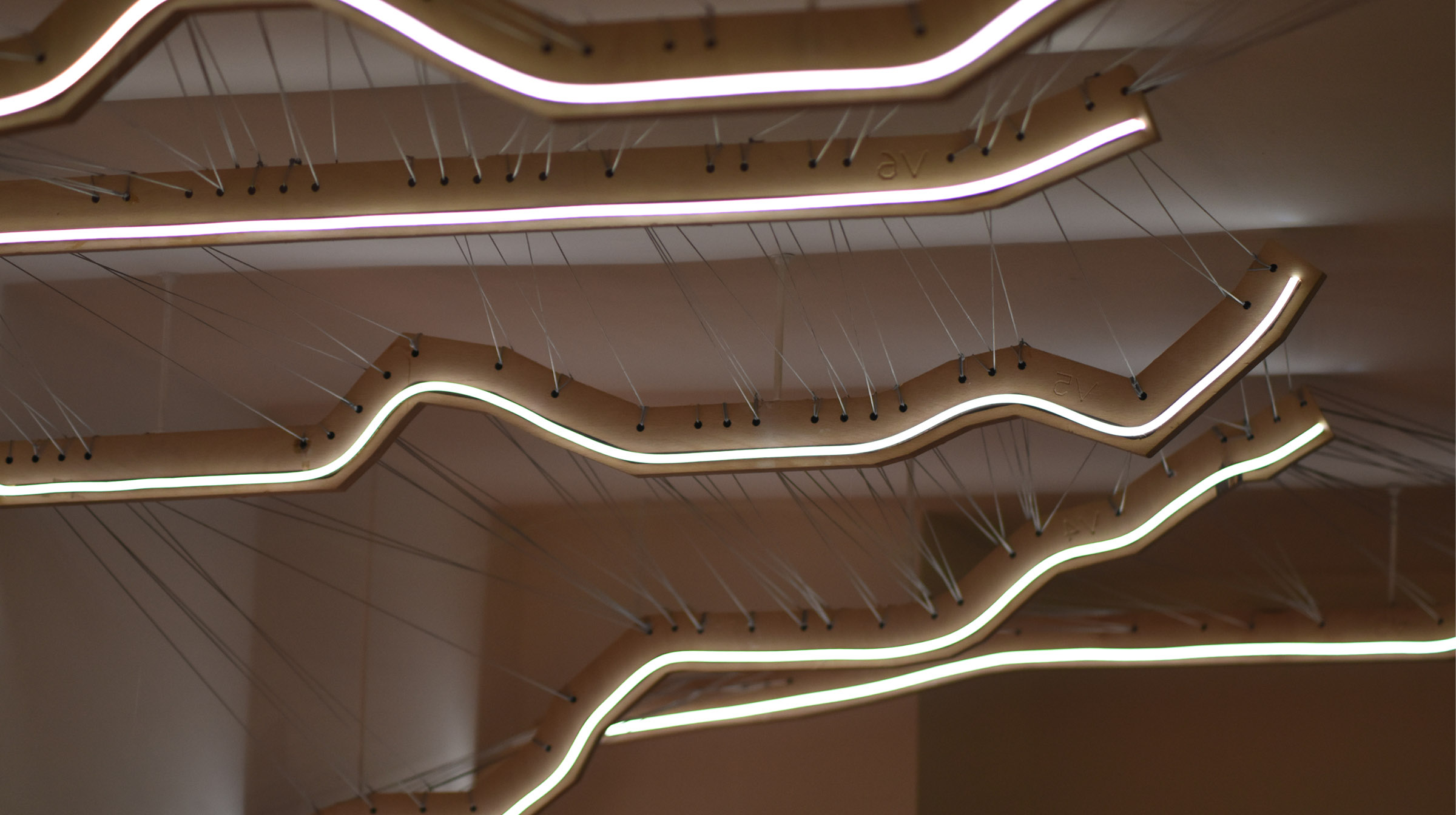
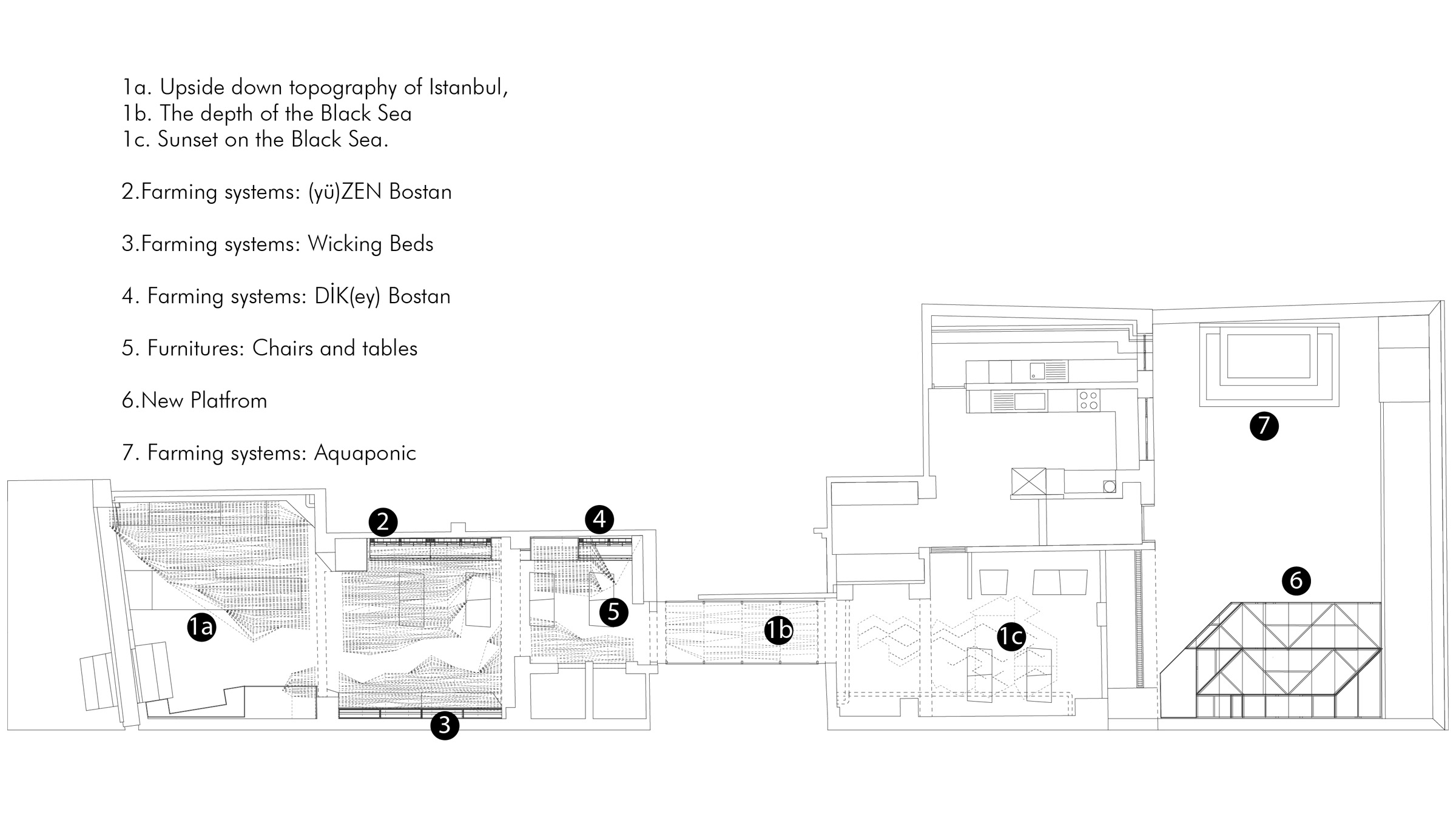
This is were we started–at the edge of Taksim Square, the de facto center of modern Istanbul, and a stone’s throw from Gezi Park, for many a symbol of a less-oppressive life in the city. Taksim Square is where people want to be to celebrate or to demonstrate. On one end, there is the Ataturk Cultural Center (AKM), a monument of secular Turkey with Western values (albeit with a deeply nationalistic core.) On the opposite end sits confidently a newly constructed Ottoman-style mosque as if it has always been there. In this highly contested and heavily loaded space, we set out to create an escape to a different world, to provide some respite from all the weight of concrete around us, along with some hope that we can build a greener, kinder, more livable city together.
Our first iteration was an amazing learning experience. Through a collaboration between artists, permaculture designers, architects, engineers, chefs, farmers, sociologists, social entrepreneurs, and more, we created a “corridor” from the street facing side of our space to our back yard that filtered out the pressures of insatiable consumption, and offered people a little time with living, growing things. Inside the space where we ran a soup & salad restaurant, we custom-designed hydroponic systems on both walls of that corridor so that customers as well as our kitchen staff could witness the process of growing the food we were serving. We thought that was the best way of reducing food waste. In our small back yard, we had raised beds where we implemented companion planting, another highly productive hydroponic system which wasn’t behind closed doors so that people could touch the leaves of the many different plants we were trying to grow, a quail coop because we loved their singing (and the eggs), as well as a fairly large aquaponic system where the mind-blowing symbiosis between the different species was the inspiration for the project to start with. Pretty much everything in the garden was built using recycled material, mostly old EURO palettes. Nothing was done as a decoration, everything had a purpose. We had no interest in creating the illusion of a farm in the middle of the city; our goal was (and still is) to design the real urban farms that we want (/need) to see everywhere around us in all big cities.
We experimented, and learned many lessons during our first 5+ years in Taksim until we closed the space because of Covid. After a two-year pause, we reopened the restaurant at the beginning of 2023 with the same concept and enthusiasm of serving local, organic, sustainably produced food; but we used this opportunity to update the design. Now we have installed the newest version of our flagship aquaponic system, (yü)ZEN Bostan, along with its hidroponic double, DİK(ey) Bostan, in the interior space. The rest of the furniture is also our own design and production. We wanted to emphasize the idea of the local, so we tried to fit our entire beloved city of Istanbul into our space: On the ceiling in the front section, we recreated a 3D topography of Istanbul with Bosporus in the middle, running from the Marmara Sea towards the Black Sea. On the chairs, we are using felt cushions in the shape of the district of Beyoğlu where we are located. These cushions were hand produced by a women’s cooperative in the village of Boğatepe (which is actually quite far from Istanbul, but we feel still relevant in the discussion of local production.) In the middle section of our space, we see the depths of Bosporus, but upside down; and finally in the back, we reach the Black Sea at sundown. Beyond that, we have our back yard, which should finally get us to a green place… We are currently in the process of transforming that area. We loved everything we had before, but wanted to try a solution that addresses the heat sinks in urban centers. So we have applied green roof technology to put soil on the entire back yard which used to be concrete. Now we are working on various urban farming elements which will allow us to grow our food the way it is good for all participants in the ecosystem. Follow our progress on Instagram, or better yet, come and give us a hand!
Akmerkez Farm on the Terrace
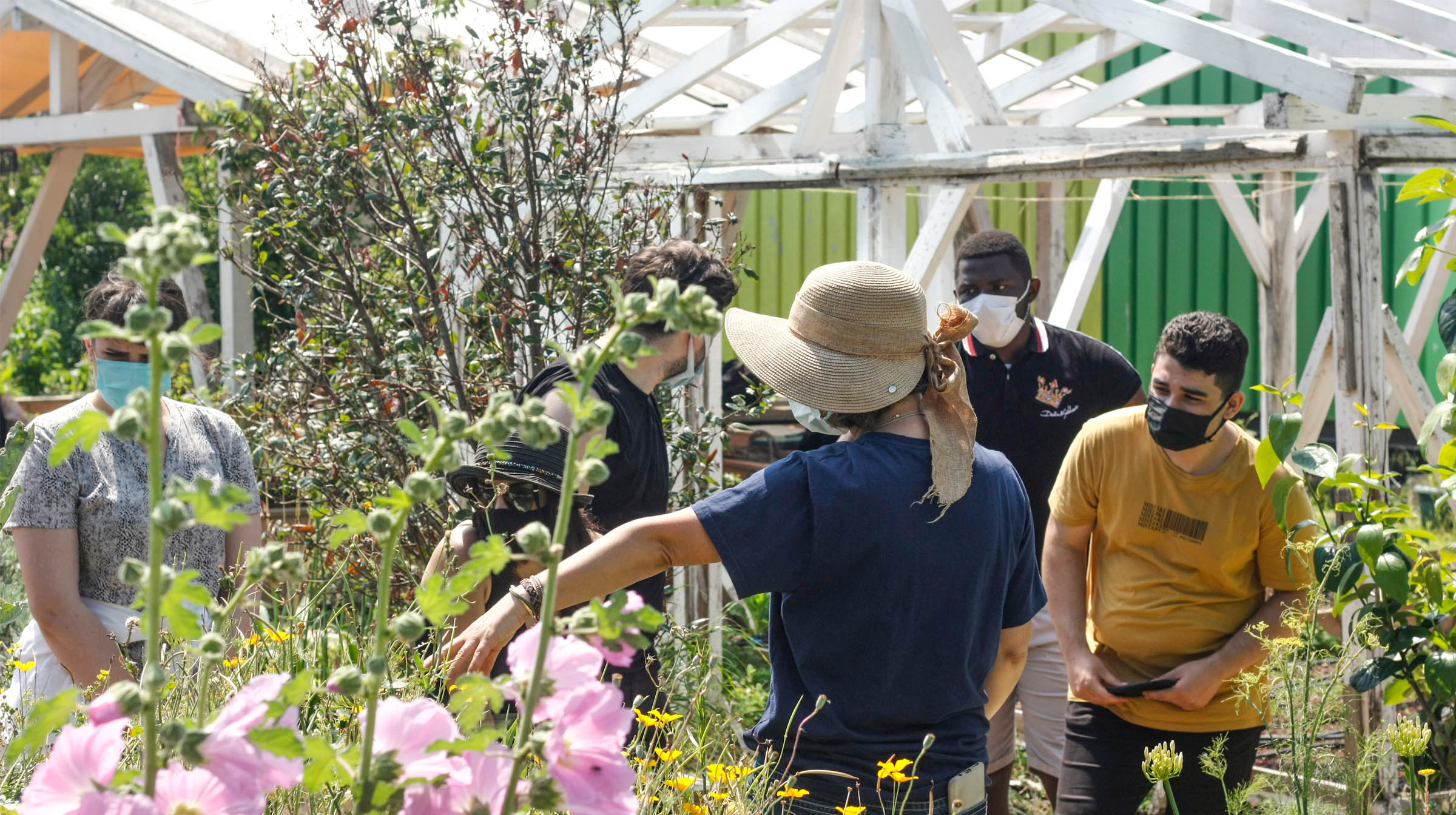
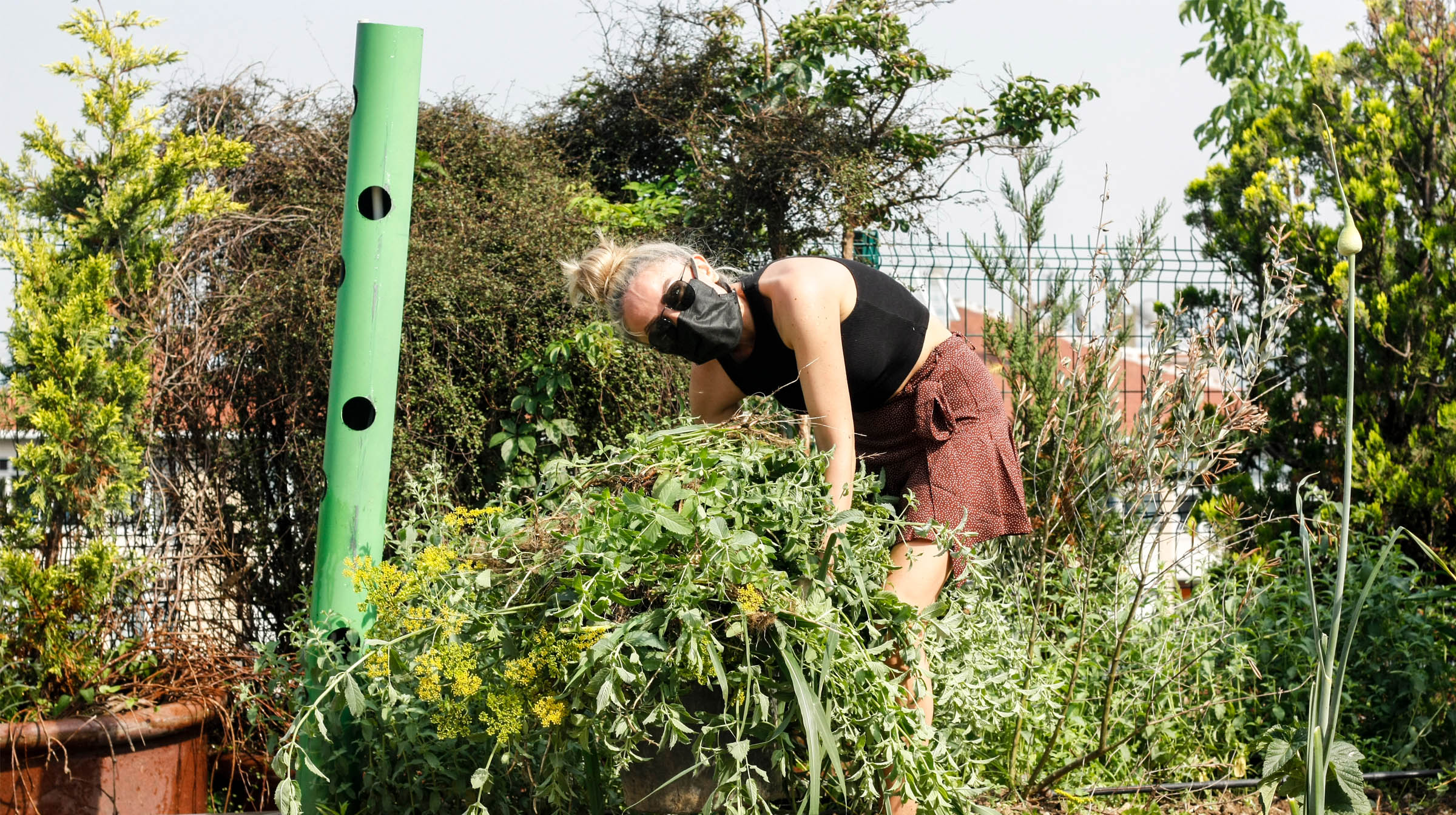
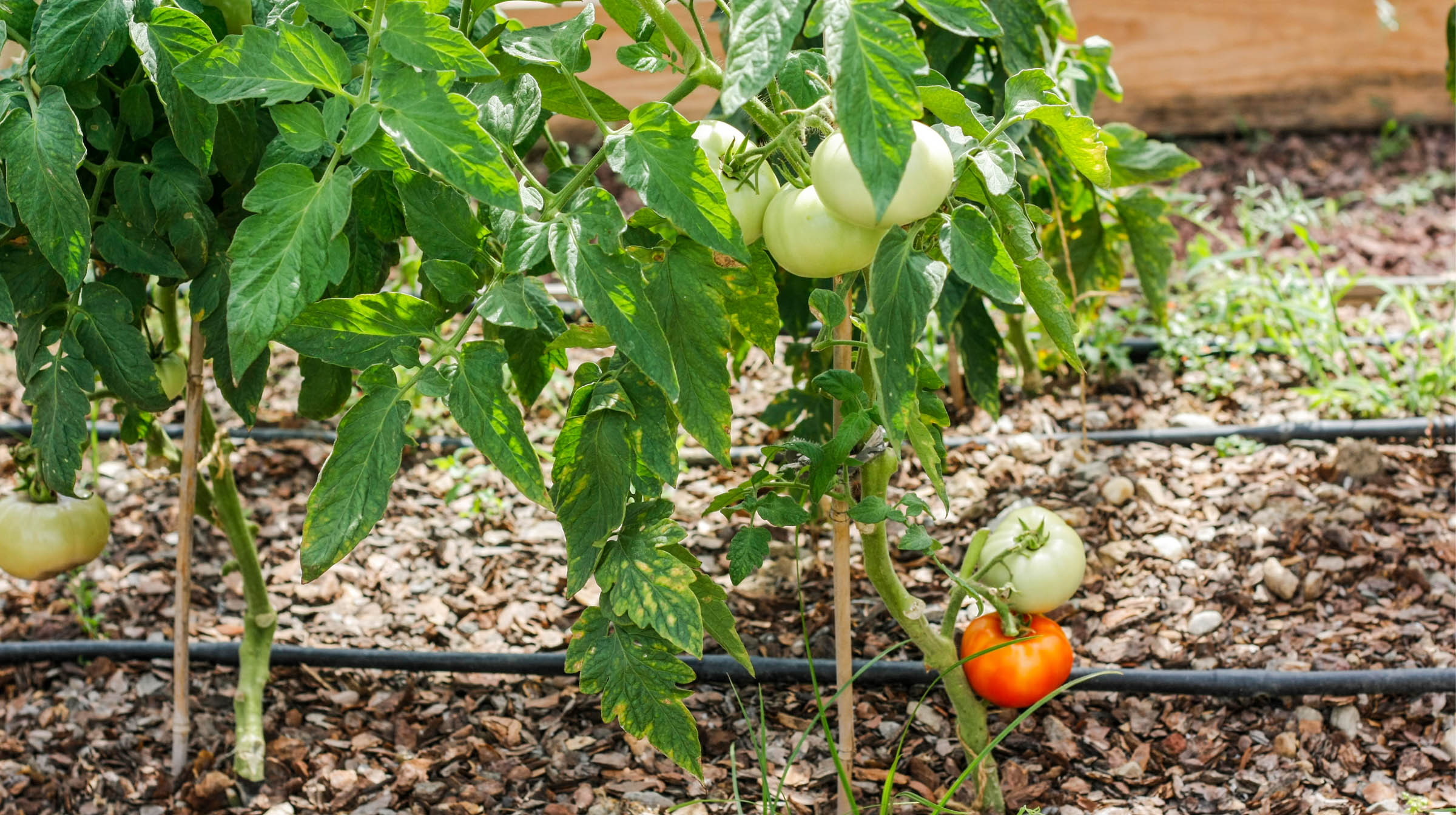
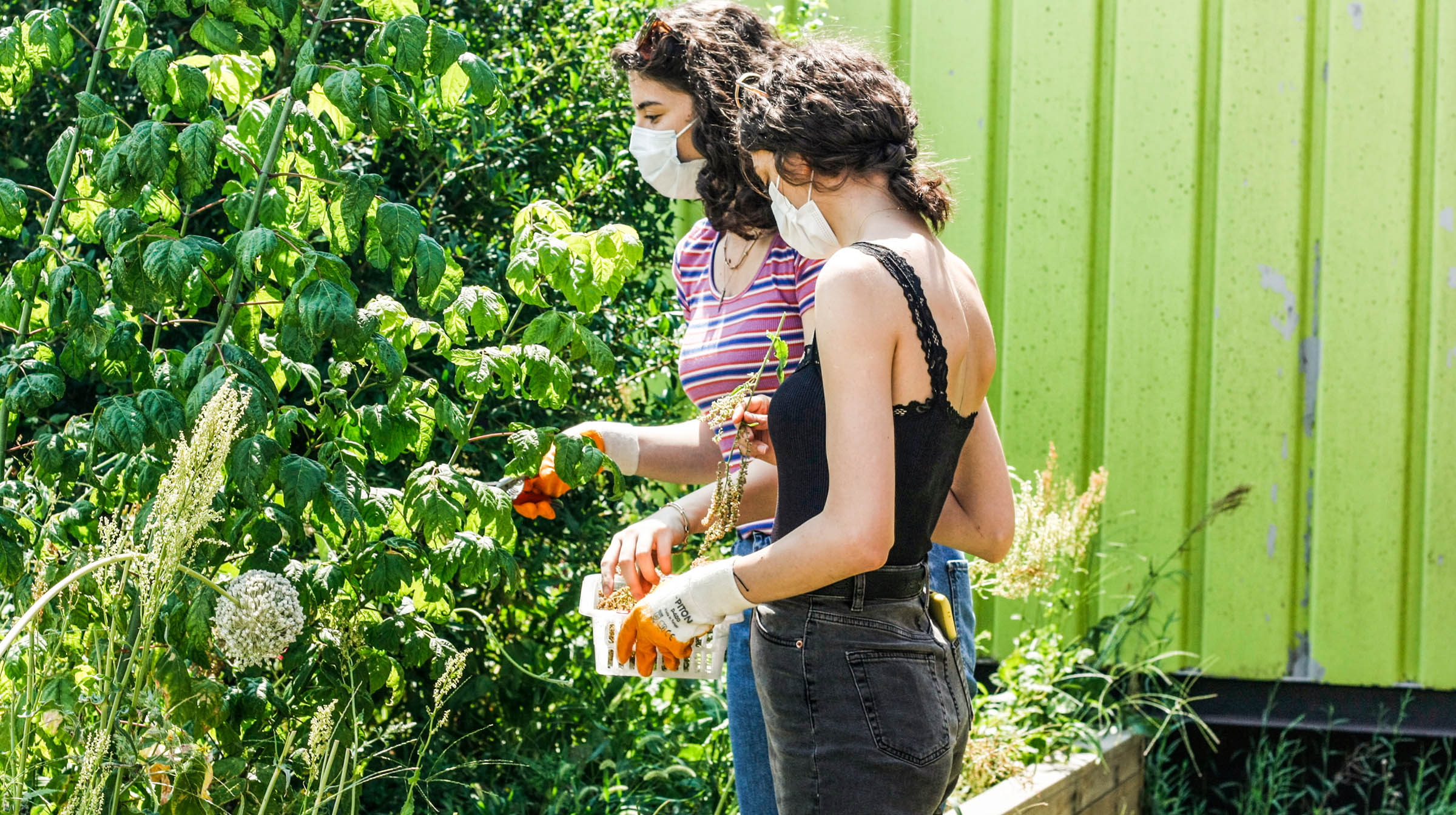
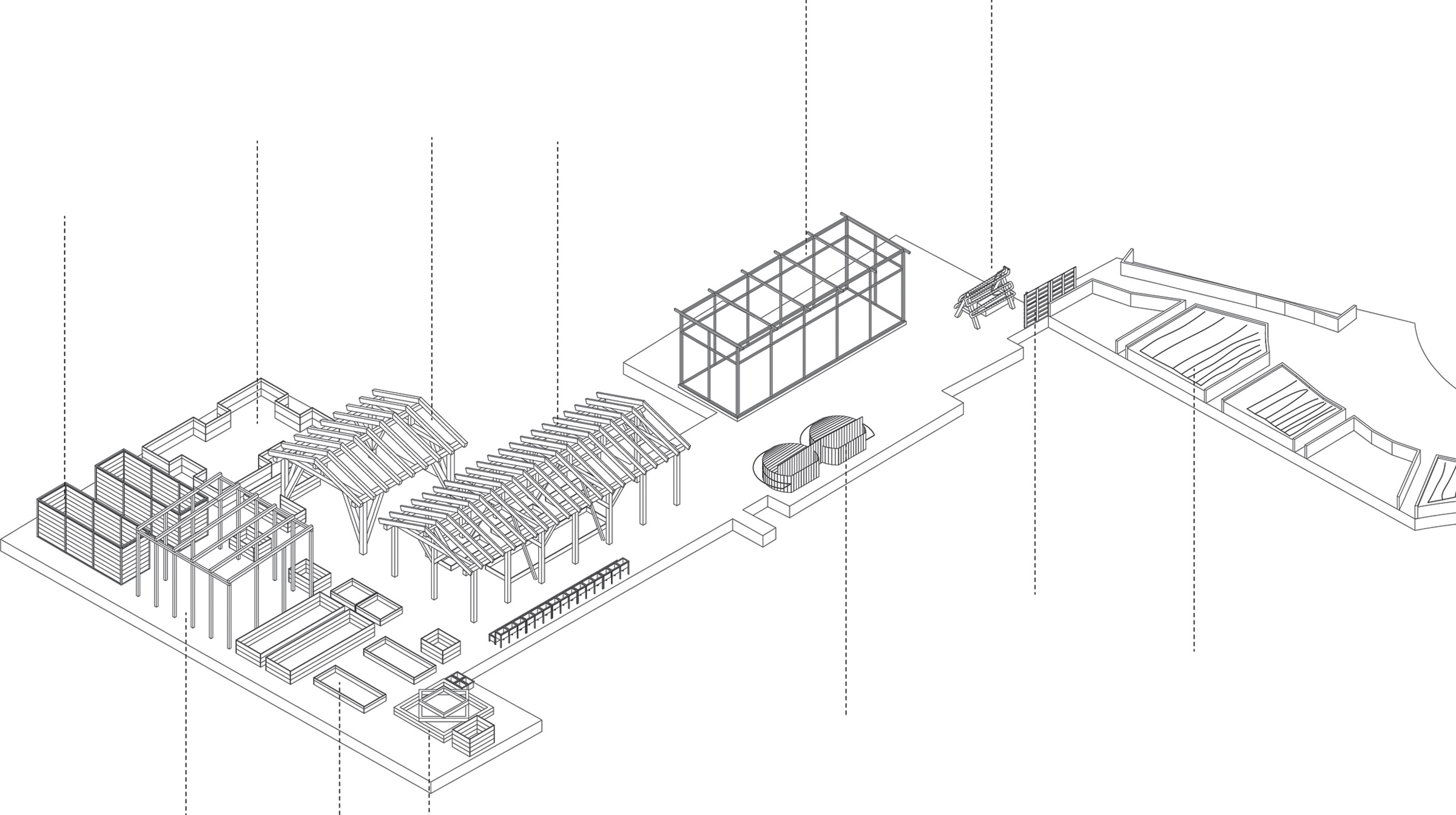
Farm on the Terrace is an urban farming project on the rooftop of Akmerkez, one of the early shopping malls in the city situated in an upscale neighborhood. Here, real estate is prohibitively expensive for most production activities, let alone farming; yet, we run a 750sqm urban farm there thanks to a social responsibility project of the Akmerkez Management.
Originally conceived by permaculture designer and then in-house architect Hasibe Akın, the project was initiated with the goal of creating a sustainable farm in an area of the rooftop that housed the building’s mechanical infrastructure, and hence, was not suitable for any revenue-generating purpose. In late 2016, with some hesitation about the corporate partnership, but seeing the genuine interest on the part of the Management team, we took over this area that had remained idle for a while because of some internal conflict. Since then, we have been implementing various permaculture techniques, and experimenting with different urban farming technologies to grow as many varieties of edible plants as possible in this one-of-a kind environment.
The rooftop is open to visitors; we offer various workshops and education programs there; and we run a volunteer program which provides us invaluable support in tending to the needs of the farm. This is our dream come true–a living example that we can grow food where we live. And that a rich ecosystem can establish itself even in highly urbanized environments when given a little room and care.
BAU Farm
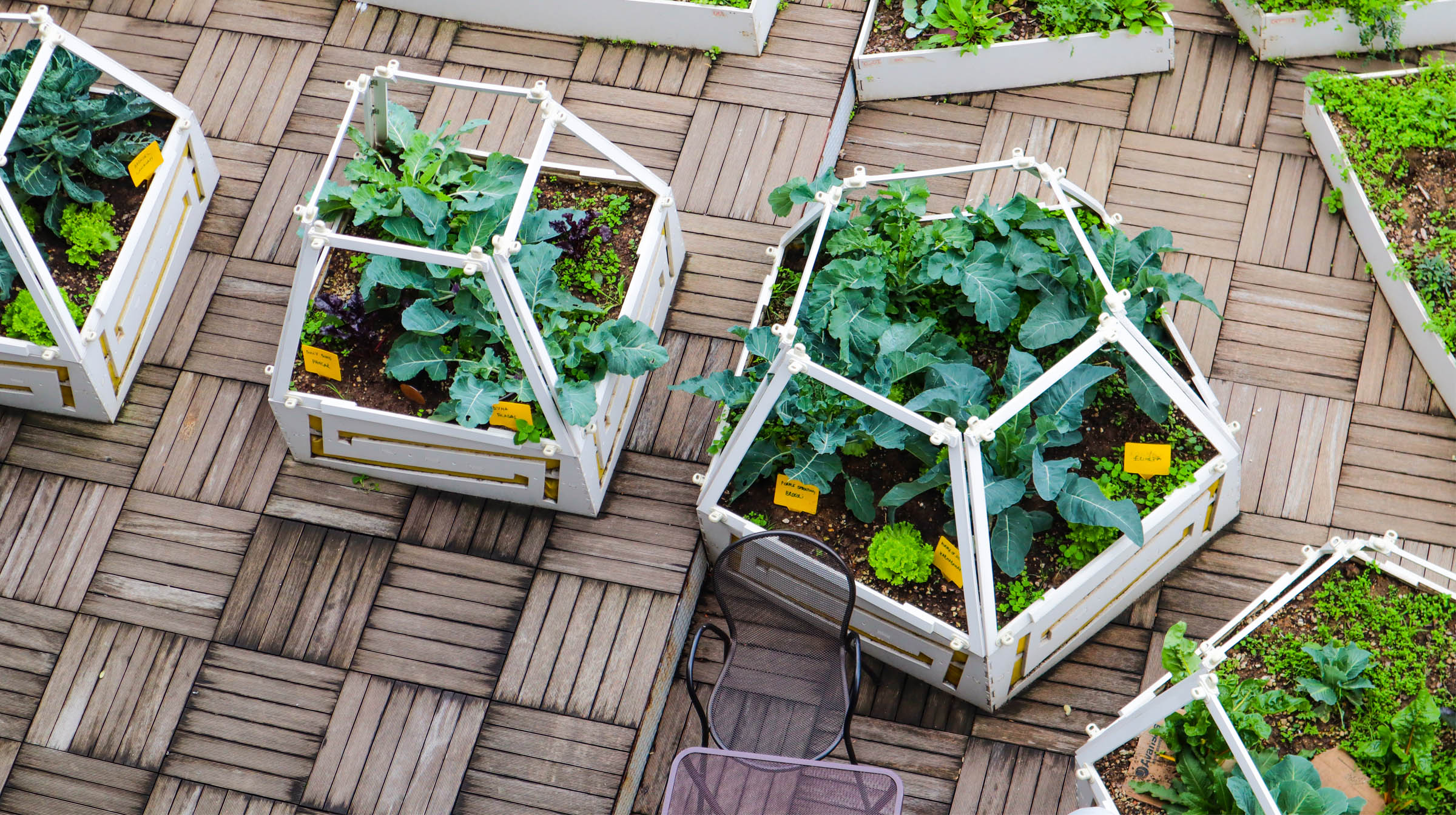
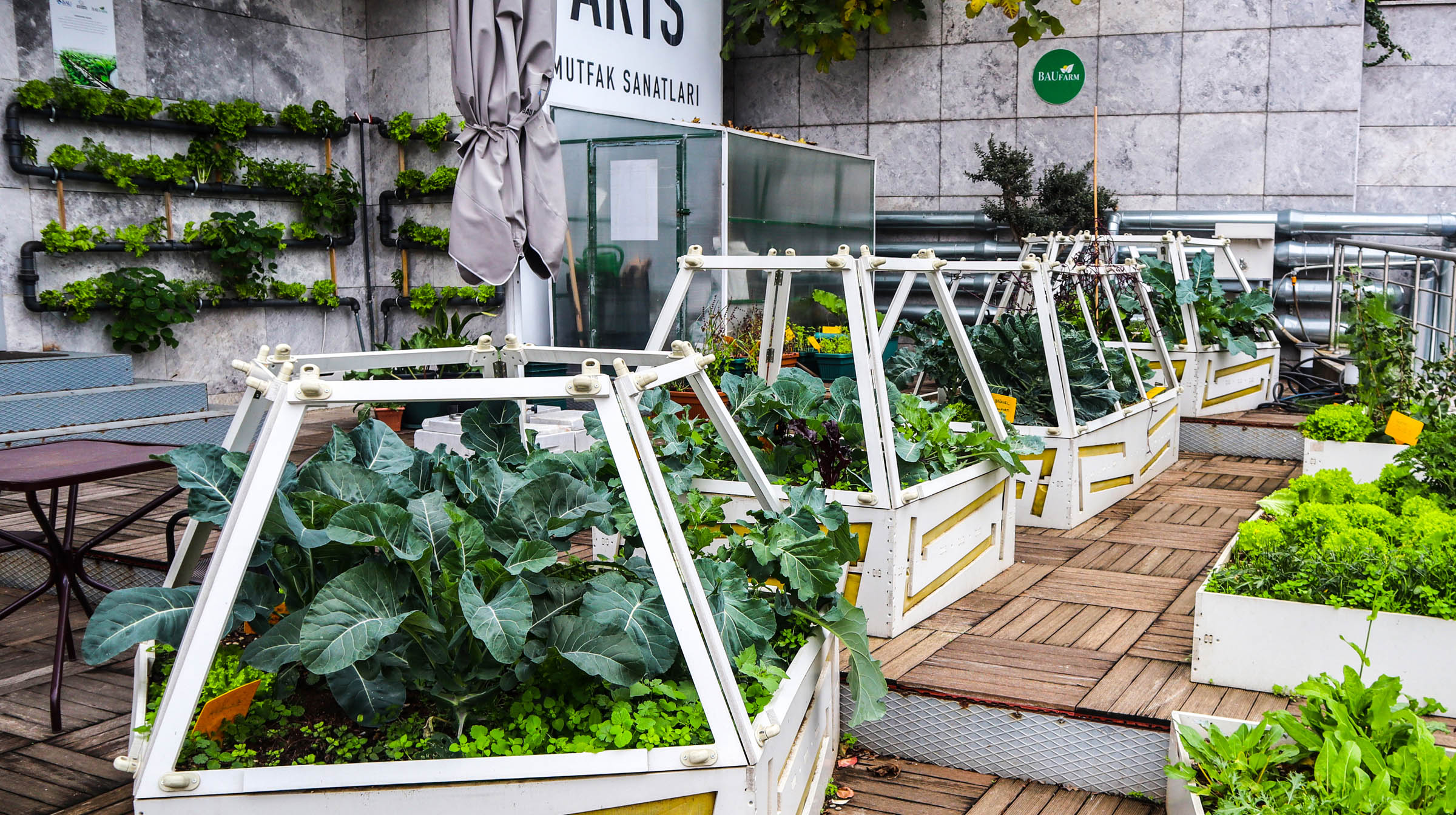
If we want to achieve some level of sustainability and equity on our planet, we have to reduce food waste. And for that, we believe we need to show the consumers of food what it takes to produce it. The best group to start with would be the chefs because their decisions impact the way so many people consume food, and how much of it is wasted. In 2020, we developed a course called Urban Farming for Future Chefs. This semester-long course aims to familiarize gastronomy students with the lives of plants before they are shipped off to the market, and also after they’re discarded from the chopping board on the kitchen table. With theory and hands-on lessons, they learn about soil, how to seed, transplant a seedling, care for and ultimately harvest a plant. They also learn about various composting methods, and how they relate to fermentation techniques used in the kitchen. We are very encouraged that this course has been part of the curriculum in two of the leading Gastronomy programs in Istanbul, at USLA and BAU.
In addition, we have had the privilege of designing, building, and maintaining an urban farm for BAU’s Gastronomy and Culinary Arts Department on the terrace of their campus in Beşiktaş–again in the middle of a crowded urban center. The BAU FARM, as it is called, consists of raised beds that optimize the compact space, a hydroponic installation at a corner wall, which turned out more productive than we expected, a small greenhouse for seedlings, as well as composting units. Here, together with the students, we grow seasonal vegetables, greens, and aromatic herbs, emphasizing polyculture, and entertaining requests from the faculty for regional specialties.
Hope Alkazar
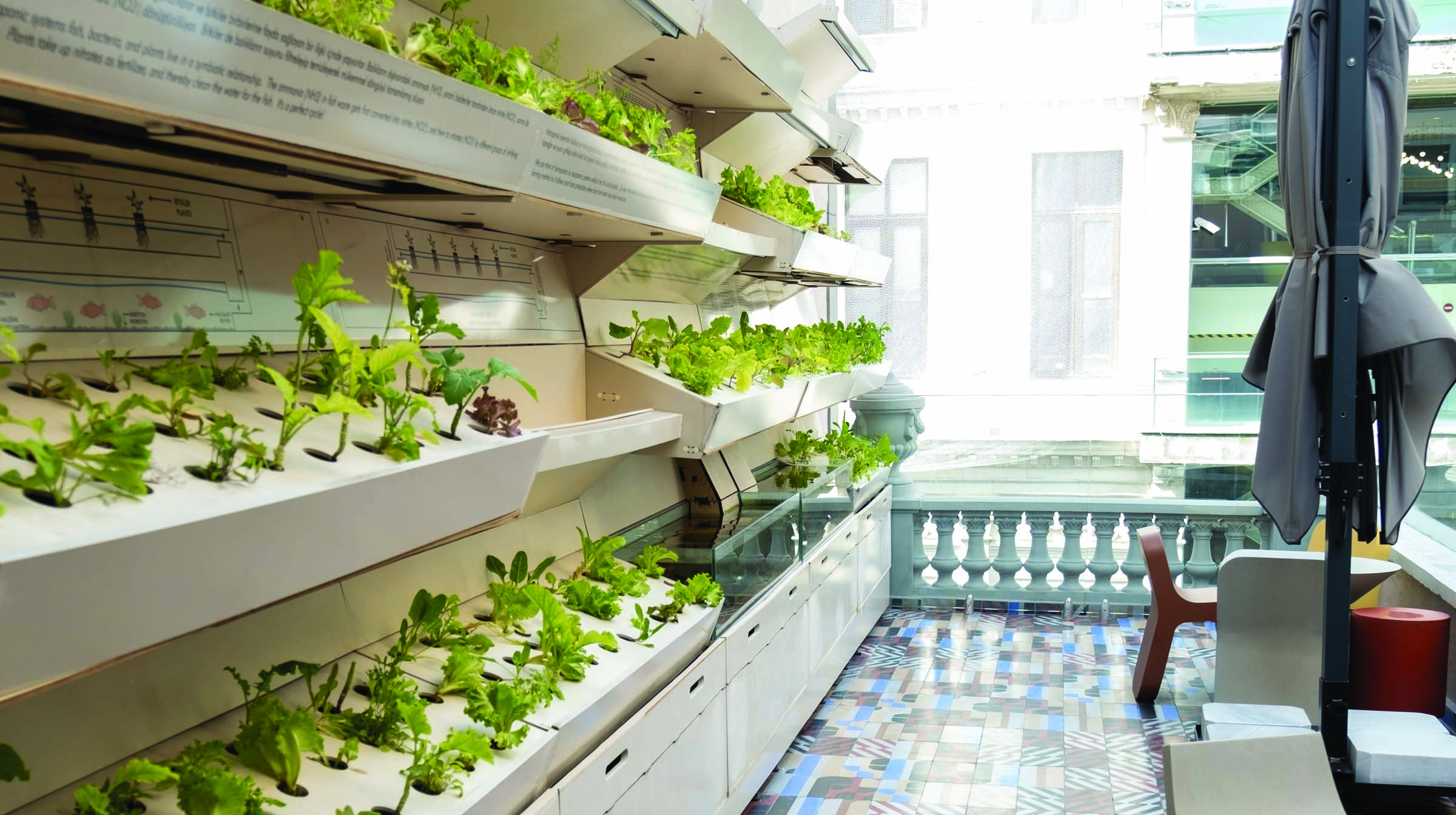
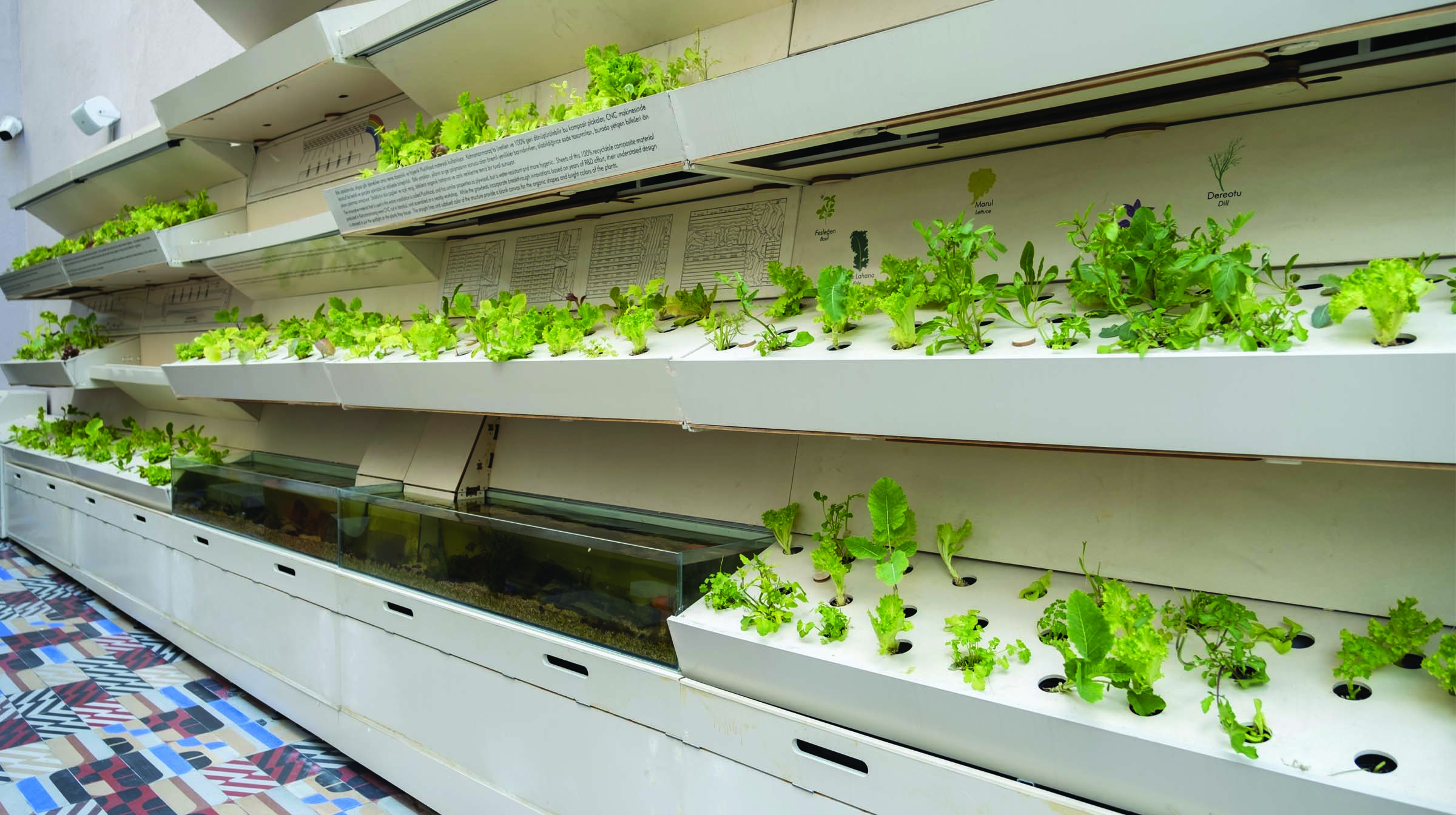
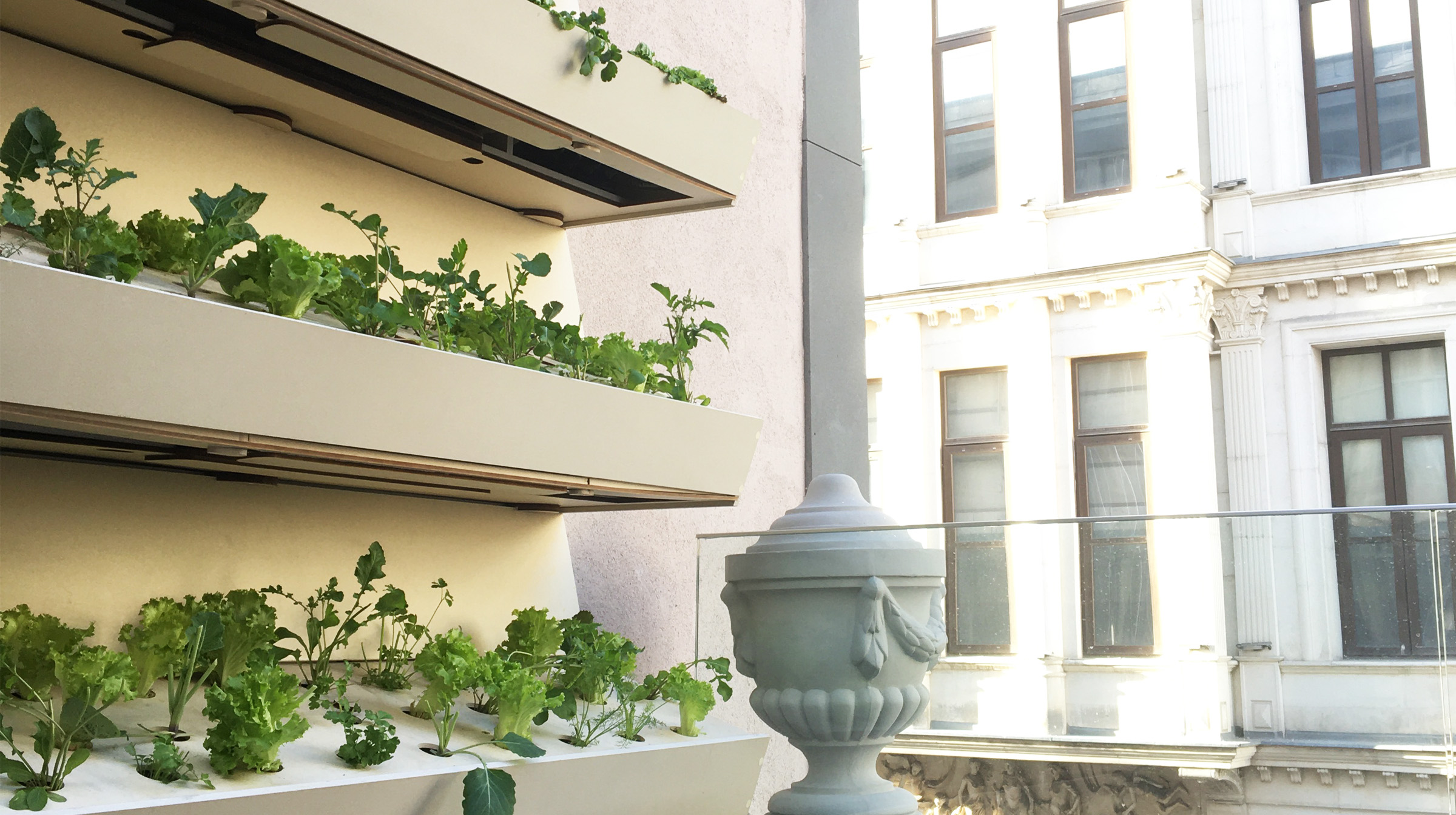
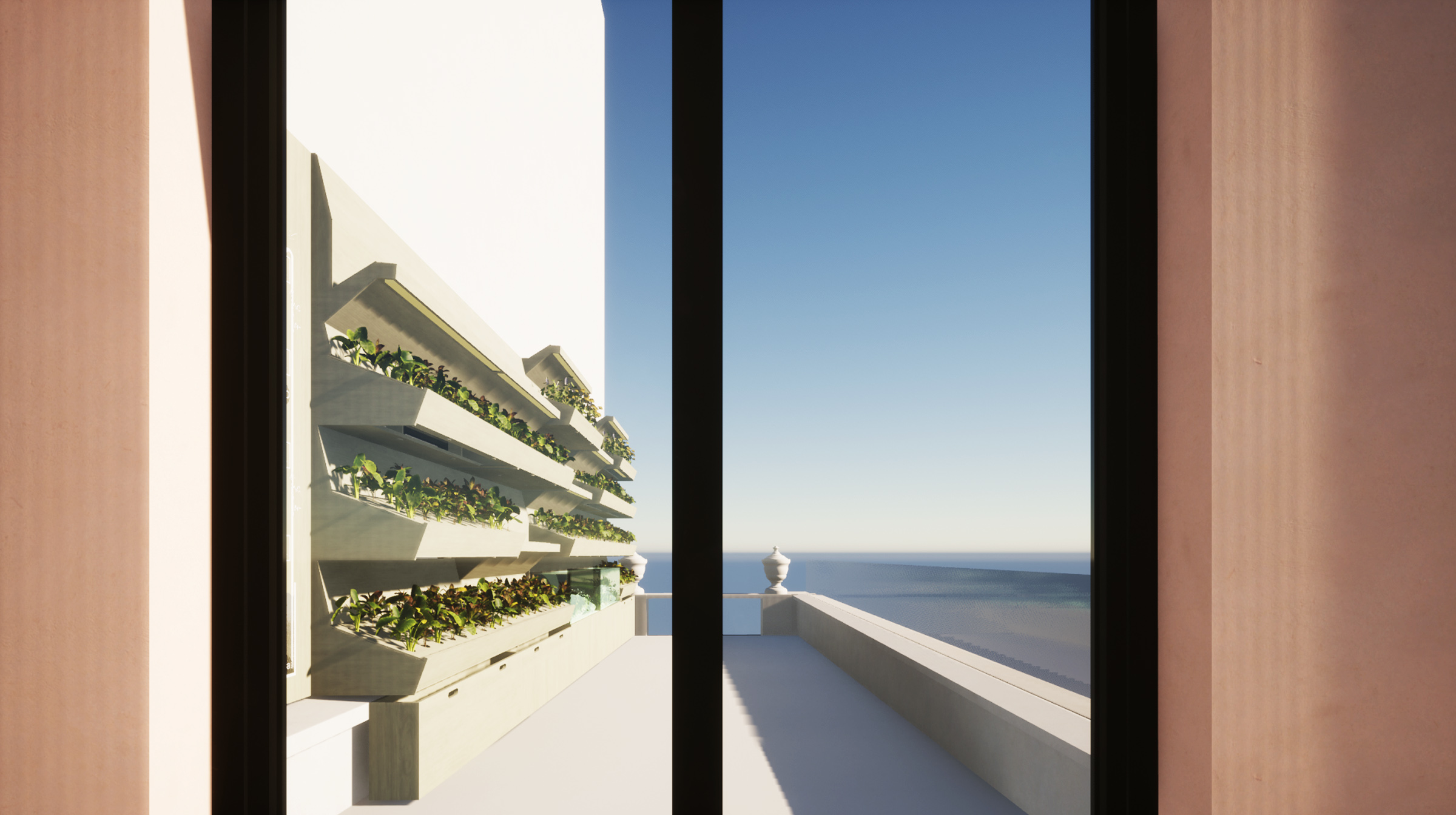
İstiklal is one of the busiest pedestrian streets in Europe–hundreds of thousands of people pass by every day that begins (or ends, depending on your direction of travel) at Taksim Square. There are still government buildings and foreign consulates for official affairs along this street, but most business is concentrated on shopping, eating, drinking, and indulging in some form of entertainment. Several old movie theaters in historic buildings have long been converted to shopping malls, but one of them, the Alkazar Theater, has recently undergone a more uplifting transformation into a social space where people can engage in activities that center around keeping the body and the mind in motion. Movie screenings, large scale art installations, yoga/pilates/dance sessions, basketball/football matches are all on the menu at this location adjacent to a large Nike store. There is also a maker’s club on premises that runs upcycling workshops, which hints at the sustainability story of the project’s main sponsor, Nike…
Inspired by the parallels in the language we use on sustainability–Nike on fashion apparel and EK BİÇ YE İÇ on food, we have been excited to be part of this partnership from the beginning, and even ran a pop-up coffee shop there during the pandemic to serve very healthy food and drinks to strictly limited number of visitors! But our main contribution is a large installation of our vertical farms (yü)ZEN Bostan + DİK(ey) Bostan along the wall of the narrow terrace overlooking İstiklal. Trying to grow food in one of the most crowded and consumption-oriented places in our geography is a mind-blowing experiment, to say the least; and we are very impressed by and grateful for our host’s openness to implementing such an experimental solution. The installation is the first of its kind in terms of design and technology–it even predates the version at our own Taksim location. However, it is still quite productive considering that it is a completely open system, i.e. not protected against even the most dangerous predators like curious humans…
As our goal is to grow our food anywhere we spend time at, we also have an indoor installation in the building, where we placed a wicking bed in an unused nook along the stairs, and tied sneaker laces together to create paths for climber plants to grow. This one is more of a speculative experiment, but we hope that it will provide us some learnings to guide us in bringing life to similar unproductive spaces around the city.
Other Installations
Mercado: ORIGINAL BY NATURE
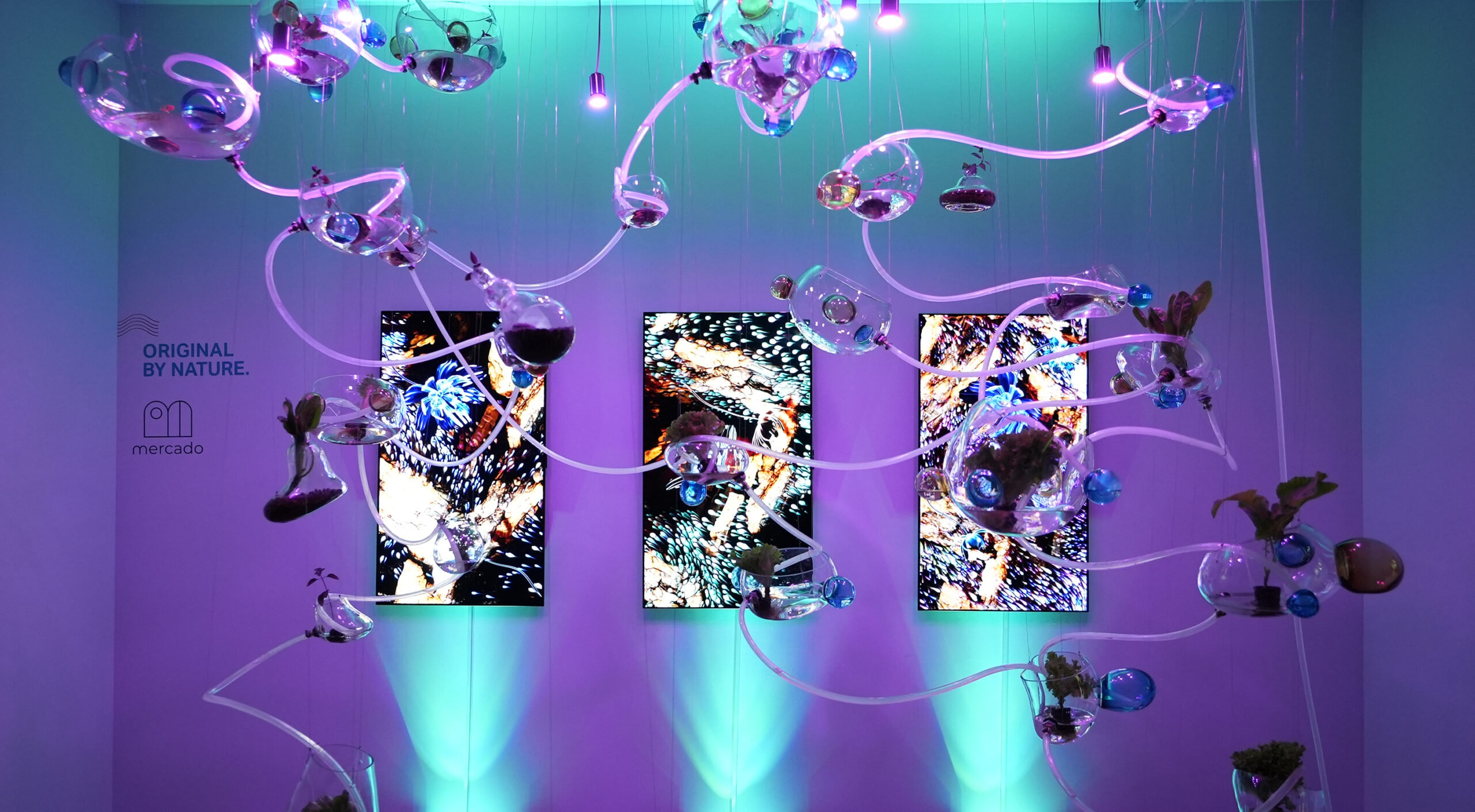
Hope Alkazar: Sarmaşıklı BAĞ(cık)
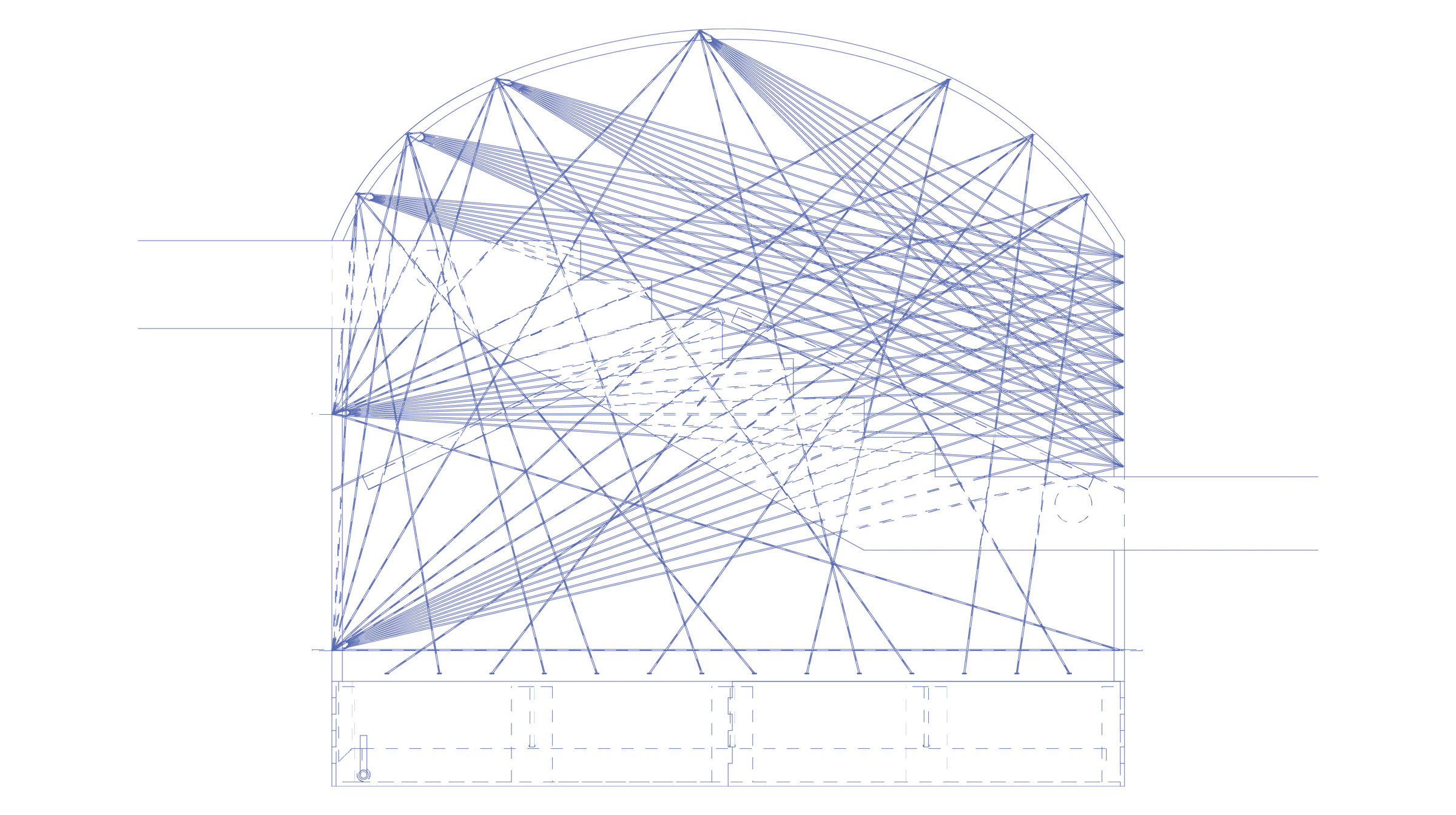
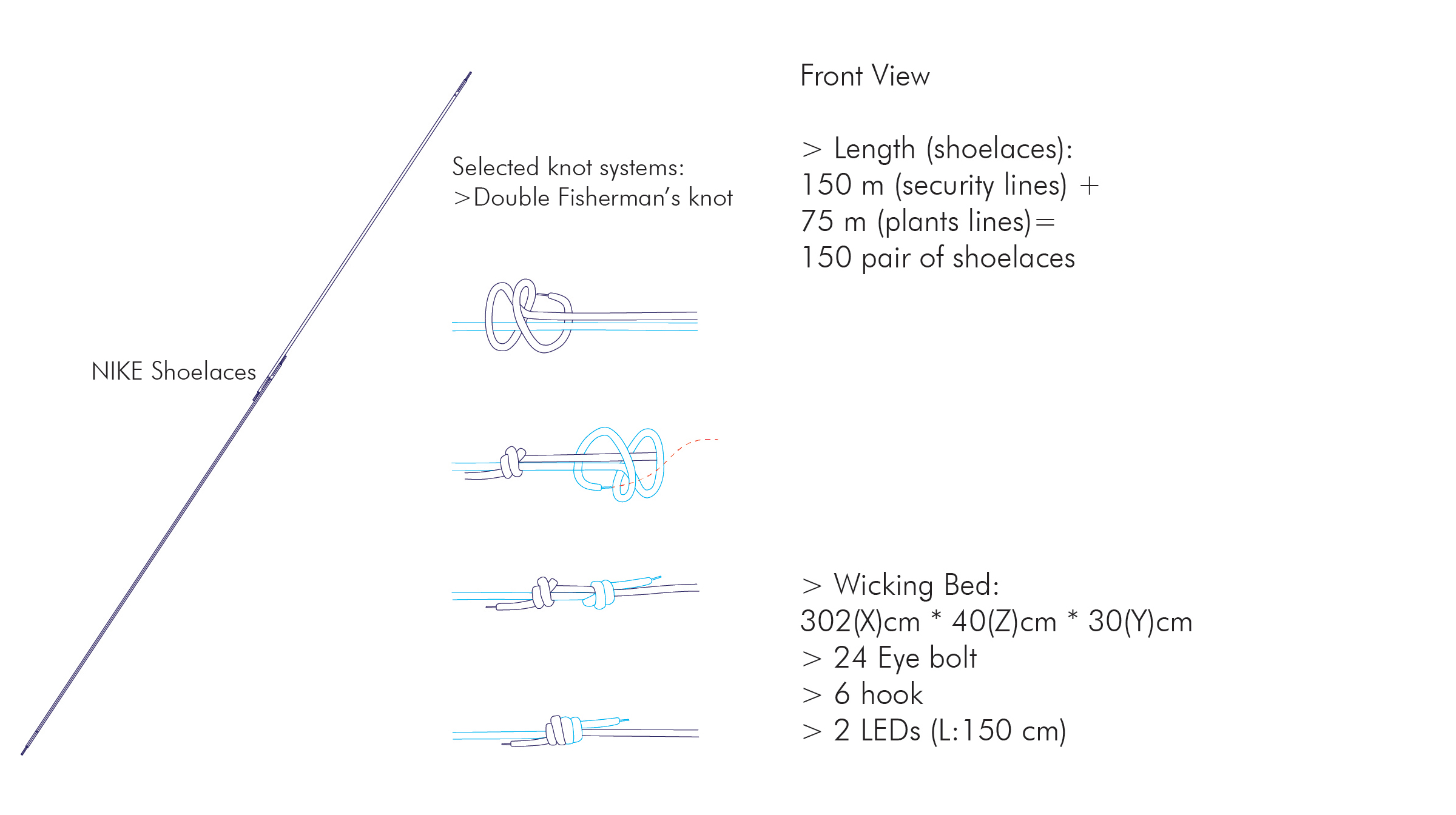
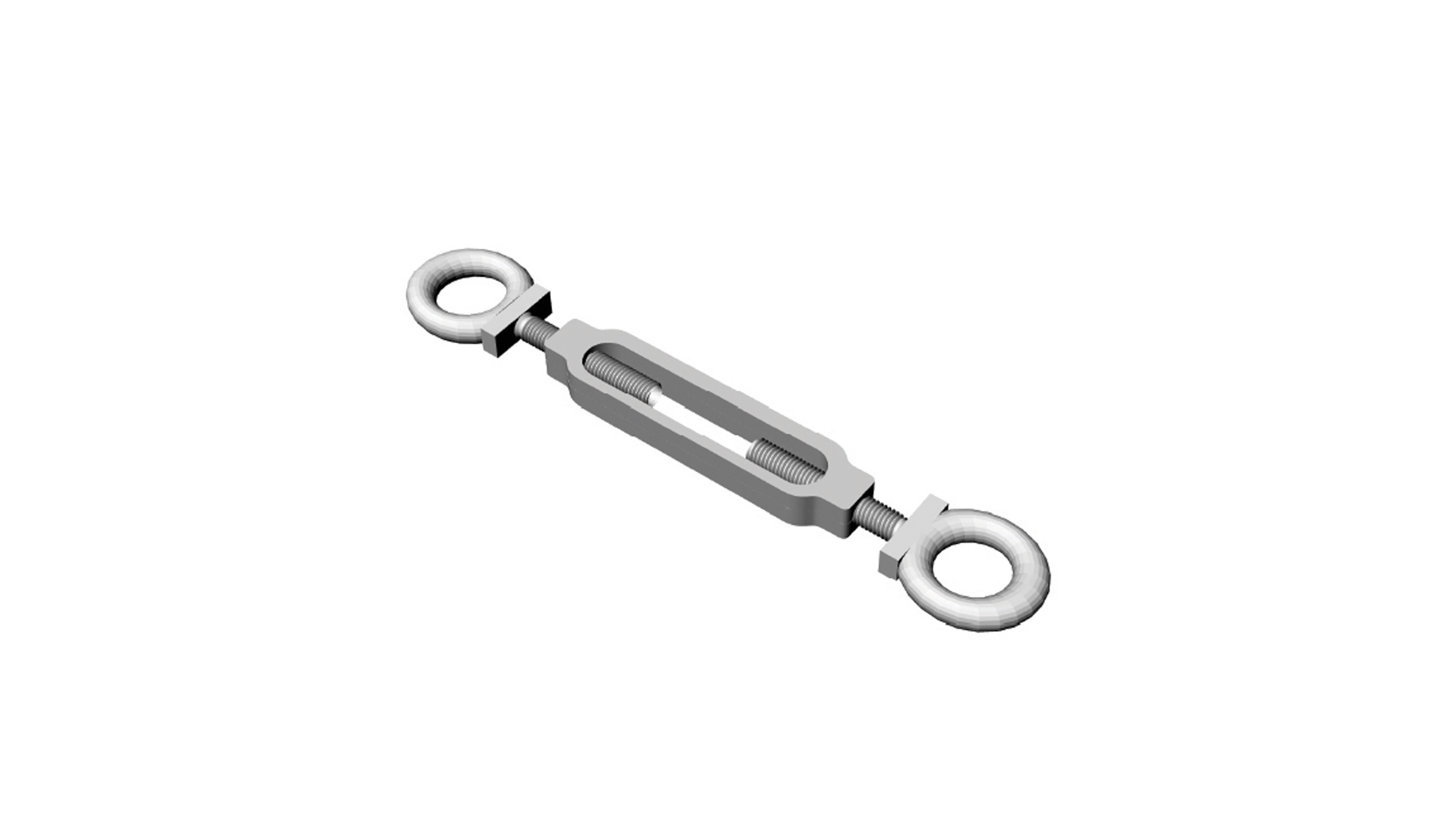
EK BİÇ YE İÇ @ Backyard Taksim

